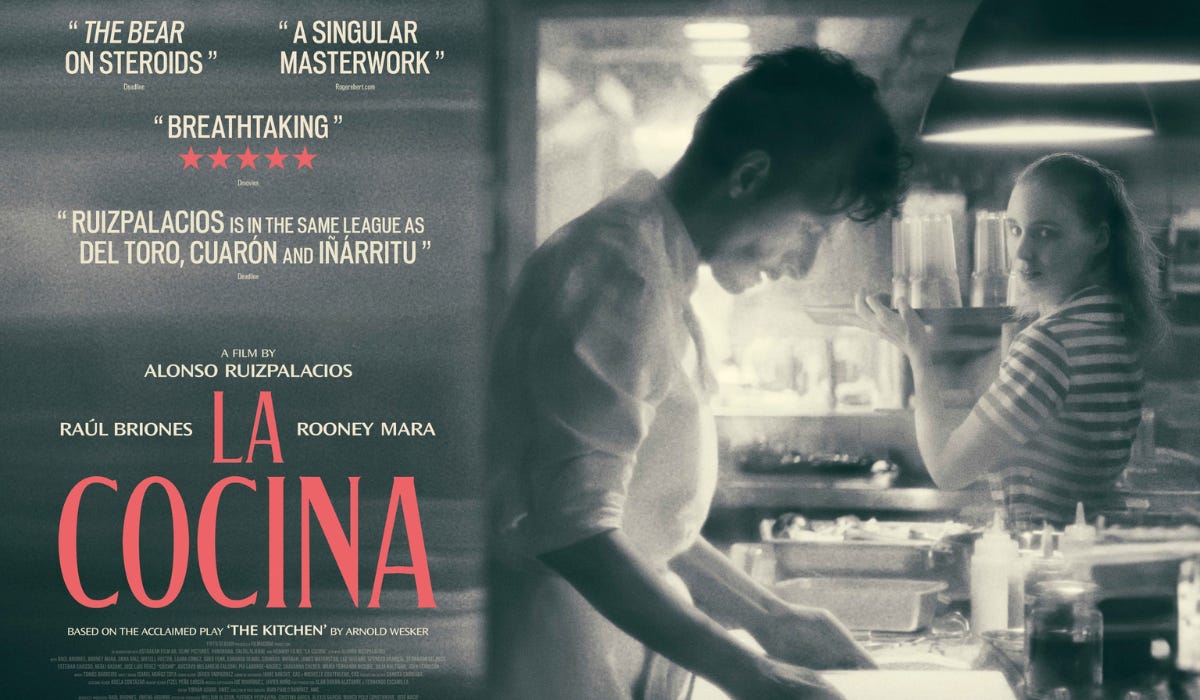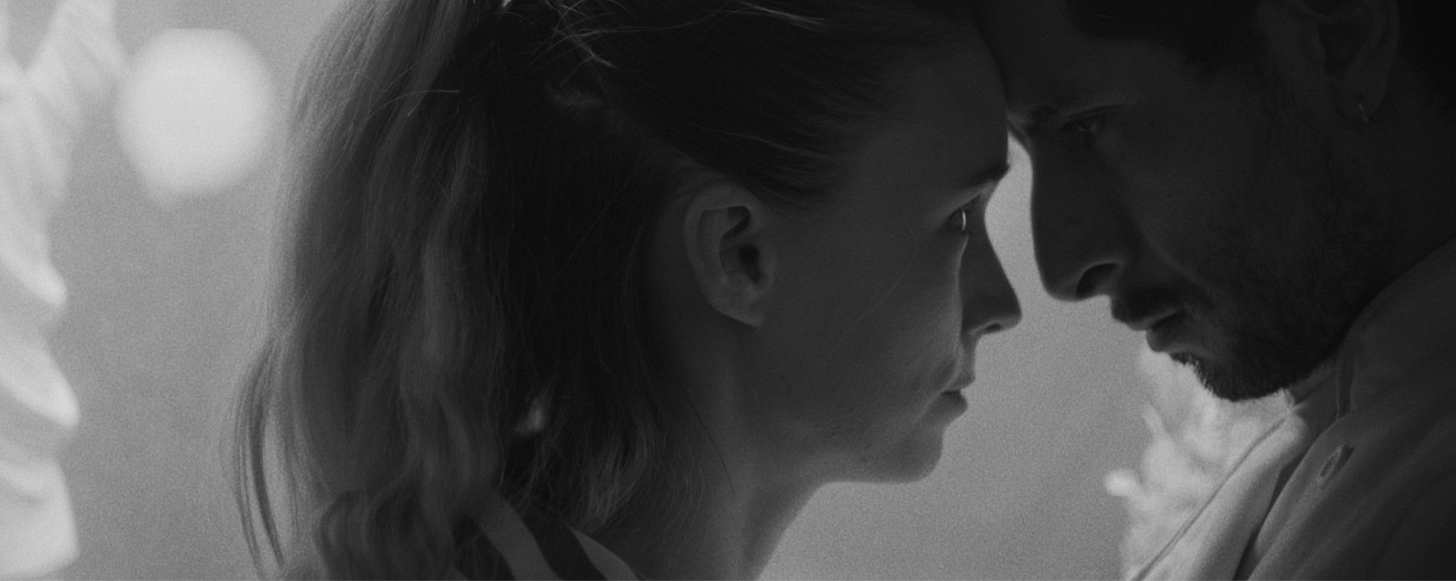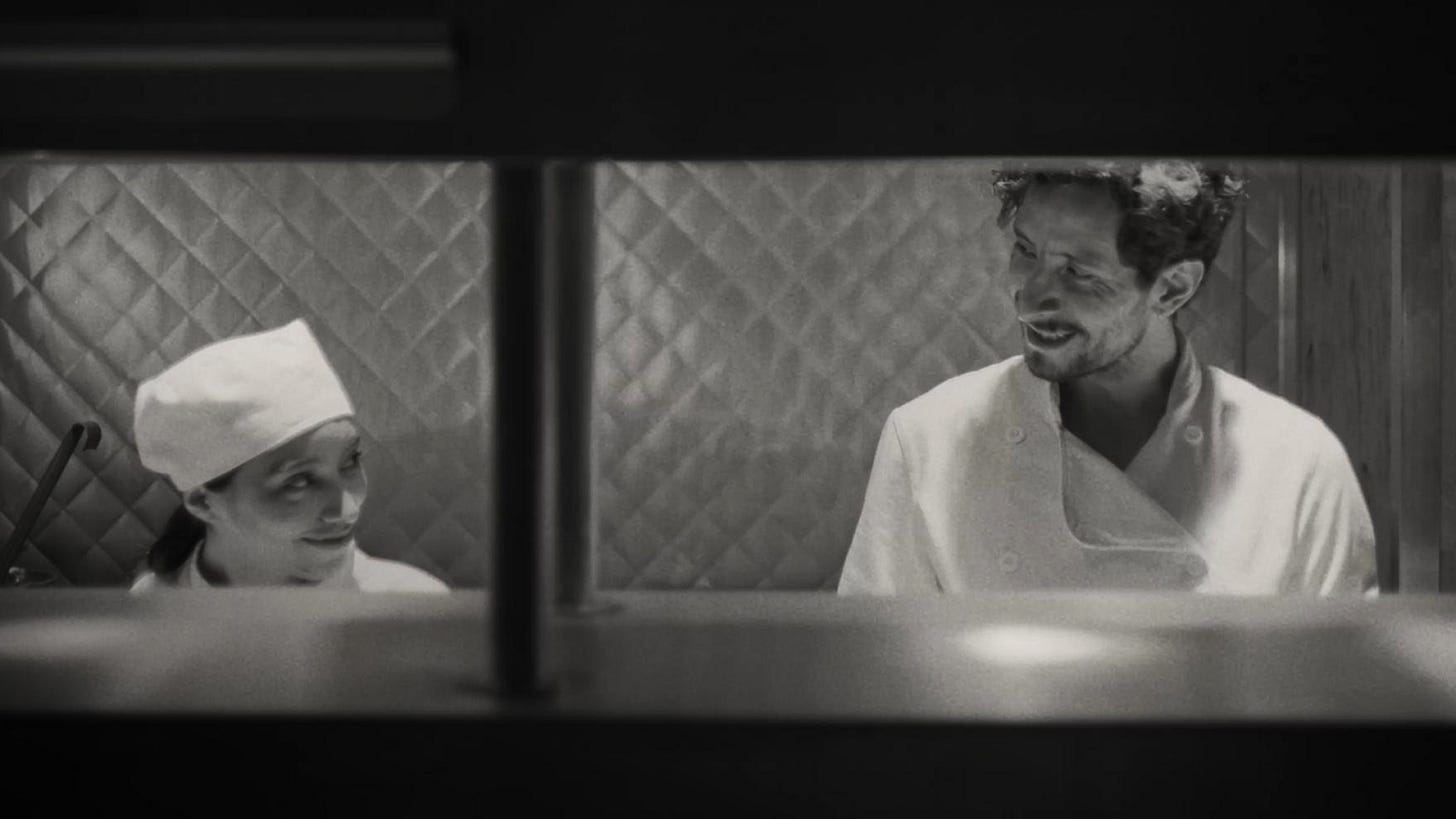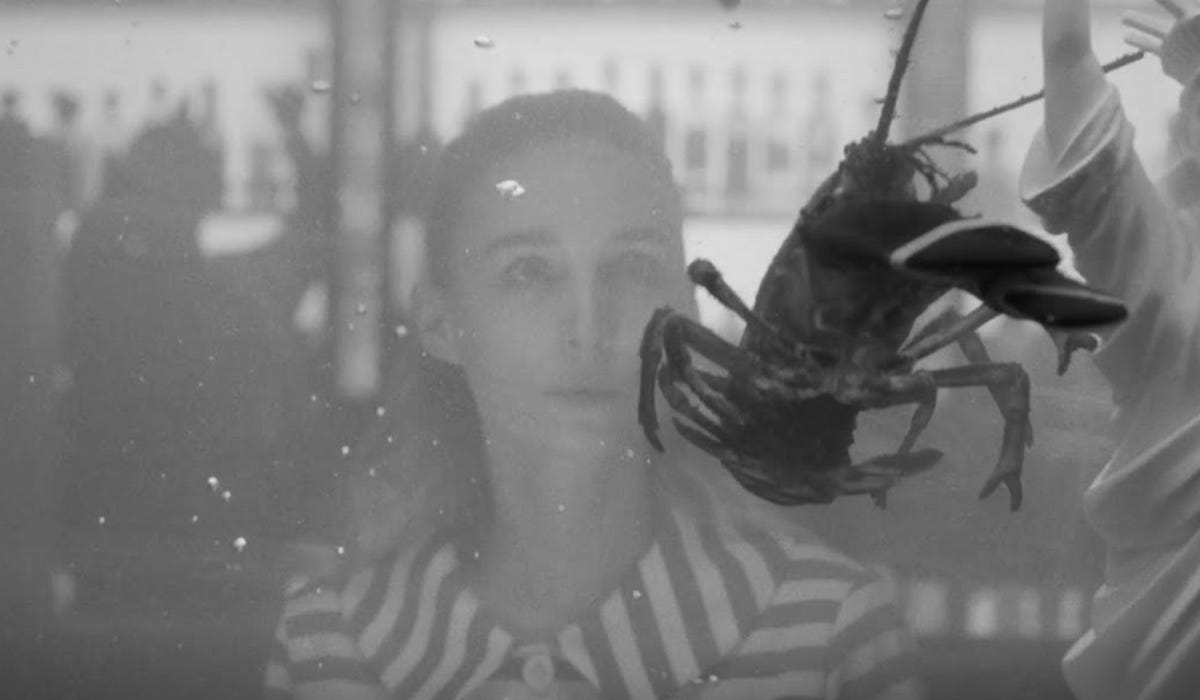La Cocina (Theaters)
Bold allegorical grandeur in an overpriced Midtown kitchen
What’s it about? In the heart of a bustling Times Square kitchen, dreams and desperation collide as the staff each chase the elusive American dream.
Who it’s for? Fans of culturally diverse storytelling, if you love The Bear, admirers of allegorical films, if you appreciate visually dynamic filmmaking, Rooney Mara lovers
Who should avoid? If you prefer straightforward plots, if you dislike heavy-handed allegories, those expecting realistic dialogue, audiences that prefer subtlety
Watch if you like: The Bear, Chef, Birdman, Roma, In the Heights
News and Notes:
Premiered at Berlinale 2024
Released today
Schmear’s Verdict: La Cocina serves up a flavorful yet occasionally heavy-handed portrayal of the chaotic kitchen world, anchored by a magnetic performance from Raúl Briones, ultimately offering a thought-provoking exploration of America's societal complexities despite its occasional narrative excesses.
(This review originally posted from Berlinale 2024)
La Cocina is like if Lin Manuel Miranda made The Bear. That’s mostly a compliment. The film, written and directed by Mexican filmmaker Alonso Ruizpalacios, is a kaleidoscopic, empathetic, and explosive look inside the belly of the beast: the kitchen of an overpriced Times Square restaurant.
Loosely adapted from Arnold Wesker’s 1957 play “The Kitchen,” La Cocina is full of verve both on screen and on the page, even if the enthusiasm sometimes comes out heavy-handed.
There is a plot, one of the ultra-convenient “only-in-theater, baby!” variety, where $800 is pilfered from the register, and a witch hunt among the many undocumented immigrant workers gets under way.
There’s a romance, too—a Romeo and Juliet kind of thing—between talented but highly flammable Mexican chef Pedro (Raúl Briones) and 10-week pregnant waitress Julia (Rooney Mara), who’s mulling over an abortion.
The rich script is at best profound and at worst tacky. People definitely don’t talk like this, and the theatricality can get tiresome. Some moments bowled me over, like a thrilling extended sequence of multilingual cussing that would make the Duolingo owl quit his job. Others, like a long dream about the American dream, had me checking my proverbial watch, even as Ruizpalacios is begging the audience to take it deadly seriously.
This busyness carries over to filmmaking too. I guess sweaty oner tracking shots are de rigueur in cooking content, and here, we certainly get one, but I can’t say it’s all that memorable. More striking are the quiet moments: lobsters floating past in their tank, a gorgeously intimate moment in the blue-hued meat locker (a scant but moving use of color in this black and white film).
The seams of La Cocina would show a little more if it weren’t for the magnetic performance from Briones, likely the best I saw at the entire festival. Pedro is devilishly charming and highly flammable, reminding me at times of peak Robert Downey Jr. Mara is reliably solid but not convincingly earthy enough—at least, I've never had an ethereal elfin princess serve me before.
La Cocina reveals the kitchen to be a grand organism, a living, breathing, melting pot representing the best and worst of America. The kitchen as a microcosm for human existence isn’t all that groundbreaking an allegory, but it is nevertheless a true one—a Hobbesian hell of hypocrisy and exploitation, sitting right beneath and out of view of the patrons’ gilded gentility.
Hell is far from the only biblical allusion in La Cocina. For those counting at home, I clocked the flood myth, the tower of Babel, and Sodom & Gomorrah as visual and thematic touch points. Lest we forget The Big Guy (or Gal or whatever you want) in the sky—here made too overtly literal La Cocina’s closing moments.
Like La Cocina itself, these references are both hackneyed and stirring, groan-worthy and astonishing. Yes, the ending’s ghostly capitalistic glow and Pedro being framed like a Dreyer-esque martyr beat you over the head, but reader, I’ve been feeling this bump for days.







